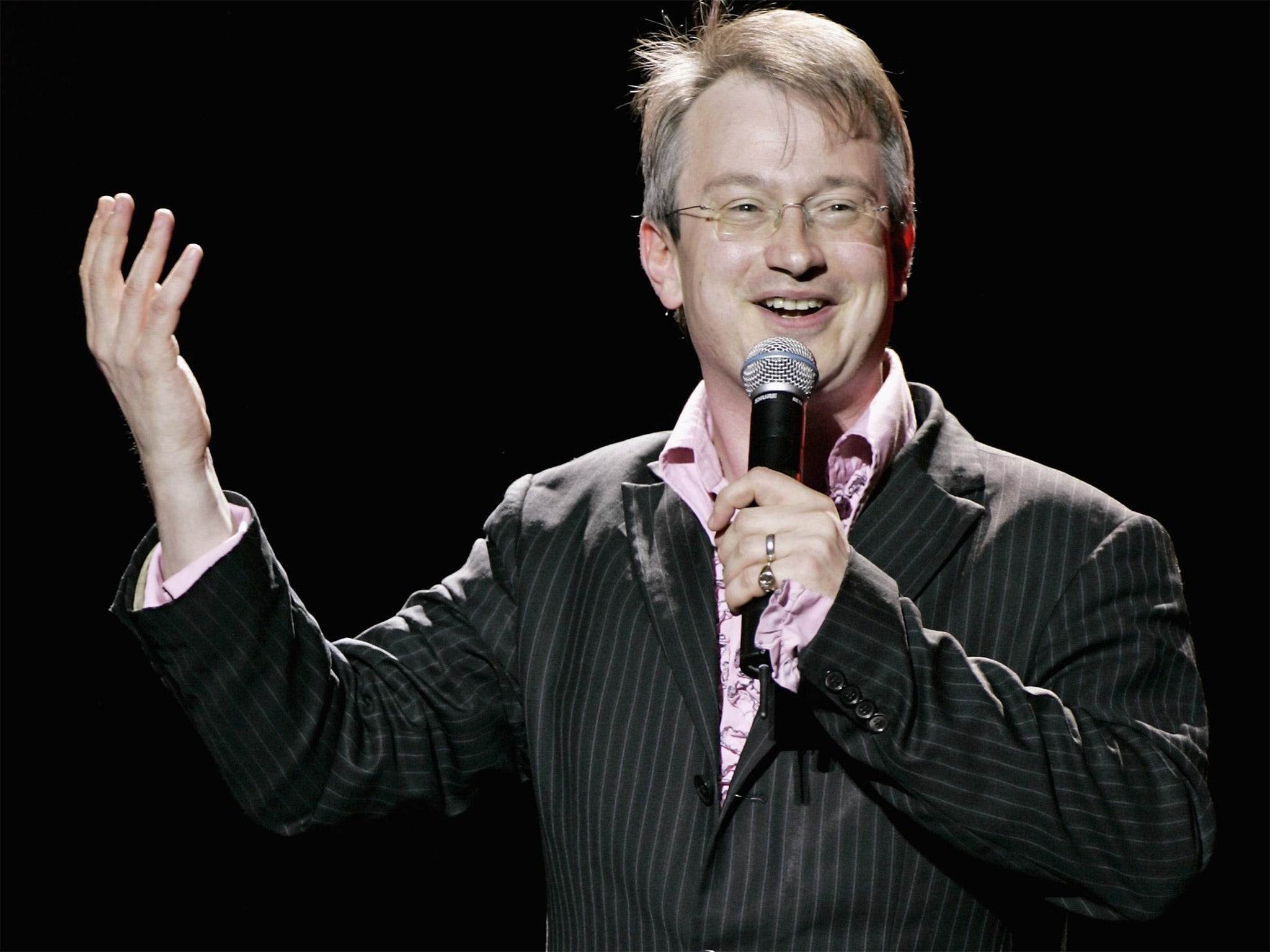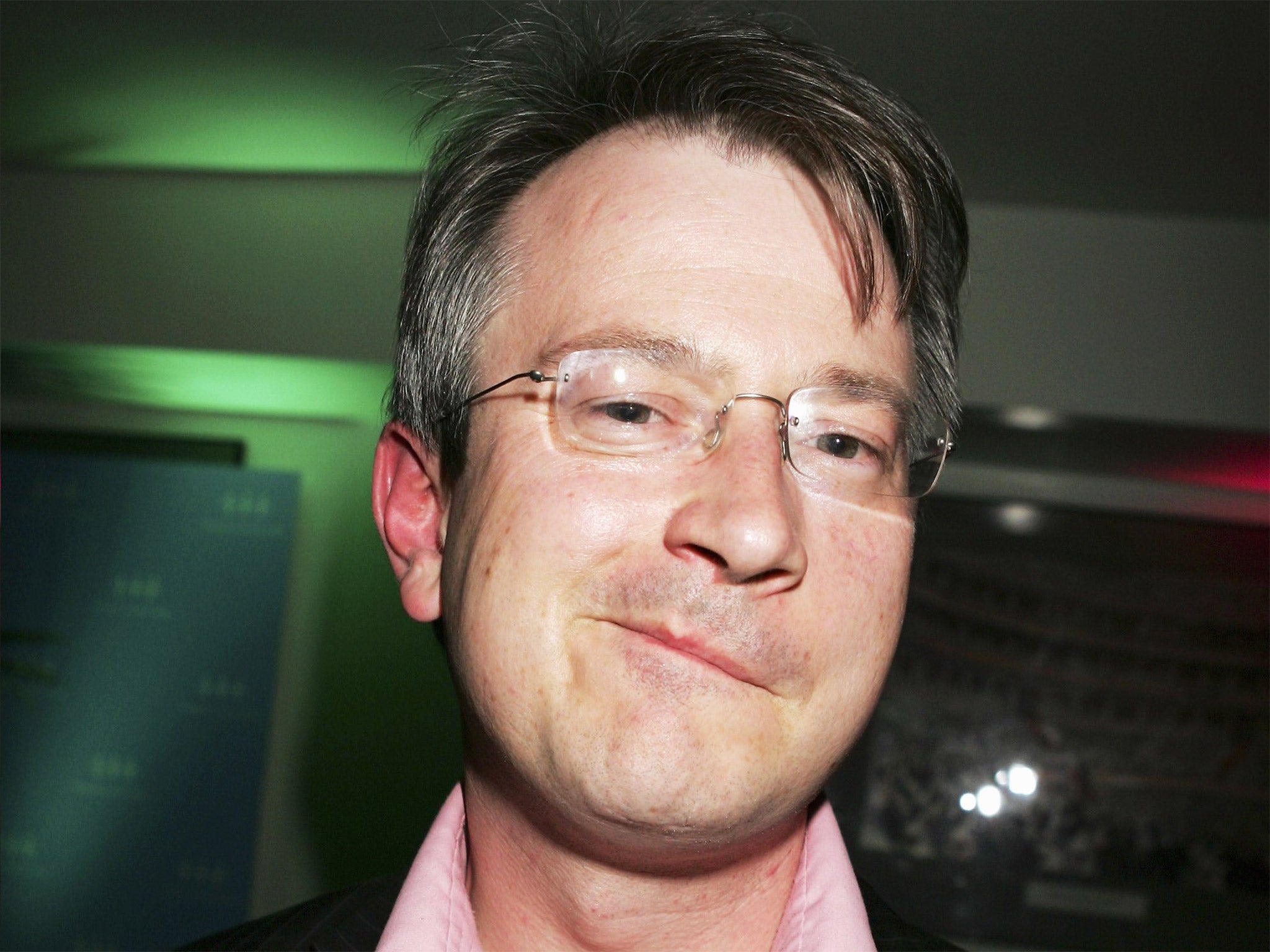Robin Ince to quit stand-up comedy over family commitments and 'imposter syndrome'
The BBC radio host will leave the circuit for 'at least two years'

Your support helps us to tell the story
From reproductive rights to climate change to Big Tech, The Independent is on the ground when the story is developing. Whether it's investigating the financials of Elon Musk's pro-Trump PAC or producing our latest documentary, 'The A Word', which shines a light on the American women fighting for reproductive rights, we know how important it is to parse out the facts from the messaging.
At such a critical moment in US history, we need reporters on the ground. Your donation allows us to keep sending journalists to speak to both sides of the story.
The Independent is trusted by Americans across the entire political spectrum. And unlike many other quality news outlets, we choose not to lock Americans out of our reporting and analysis with paywalls. We believe quality journalism should be available to everyone, paid for by those who can afford it.
Your support makes all the difference.One of Britain’s most popular alternative comedians has announced his intention to quit stand-up, saying that self-doubt and “impostor syndrome” had made life on the road intolerable.
In a candid blog, Robin Ince confessed that professional paranoia, insomnia and a desire to spend more time with his young son had led him to call time on his 20-year touring career.
“I have been a stand-up comedian for over half my life, and now it is time to stop talking,” he said.
Ince, who came to prominence supporting his friend Ricky Gervais and now presents BBC radio show The Infinite Monkey Cage with Brian Cox, announced his decision in a post titled “Losing My Religion”. His last show, at least for a while, will be in London this July.
Pointing to a career that regularly stretched to working seven days a week, he wrote: “Cutting down is not an option. Total abstinence is required.” Ince plans to walk away for at least two years and then re-assess his position.
The comedian, who won Time Out’s outstanding contribution to comedy award in 2006 and several Chortle awards, said he first considered giving up stand-up in January last year.
The main reason to step away from comedy, he said, was to spend more time with his seven-year-old son. Fellow comedians including Frankie Boyle and Lee Evans have previously stepped back from the circuit out of a desire to see more of their families.

But Ince also revealed that he had battled self-doubt throughout his career. “I see the work of [fellow comedians] Daniel Kitson or Bridget Christie or John Kearns and face my limitations. I walk off satisfactory gigs with disappointment in my airways because I keep imagining I may be capable of something that, in truth, I am not,” he wrote.
The paranoia really kicked in when he supported Gervais on his tours in 2004 and 2007, he added. “That was the first time I got social media antagonism. I can weather it now, but at the time it seemed to change something inside me.”
In the post, he confessed to being dogged by uncertainty about his own ability. “Why am I saying what I am saying? Do I know what I am talking about? Is there anything original being exhaled?” he wrote. “I think I was starting to go mad. I didn’t have some Hancockian black dog hovering above me, more a facetious little grey dog yapping.”
Ince’s statement appeared to strike a chord with other working comedians, many of whom said they had battled similar problems.
Richard Herring responded on Twitter, saying he has “similar thoughts (esp now I have a baby) but have weathered it”. Stand-up Stephen Grant said: “Sometimes I feel similar. Go with your heart.”
Ince started as a comedy writer on shows with comedians including Alistair McGowan and Graham Norton. He appeared in the 2001 Edinburgh show Rubbernecker with Ricky Gervais, Stephen Merchant and Jimmy Carr.
Tony Hancock, one of Britain’s best loved comedians of the 1950s and 1960s, suffered from depression and became an alcoholic. Spike Milligan and Kenneth Williams also suffered. Research published last year in the British Journal of Psychiatry said those working in comedy were more disposed to “high levels of psychotic personality traits”. Comedians including Stephen Fry, David Walliams and Ruby Wax have talked openly about mental health issues.
Writing about the death of Robin Williams last year, comedian Dana Gould addressed why stand-ups regularly suffer. “Being funny,” he said, “is not the same as being happy.”
Ince concluded: “I have two months left. Let’s see if I can give up stand-up for longer than I gave up whisky or if the addiction is such that I’ll start busking jokes outside the Hayward Gallery by August,” adding: “This whole thing may just be nonsense, and in a matter of weeks I will be pugnacious, facetious and armed to play low-turnout border towns all over again.”
Join our commenting forum
Join thought-provoking conversations, follow other Independent readers and see their replies
Comments